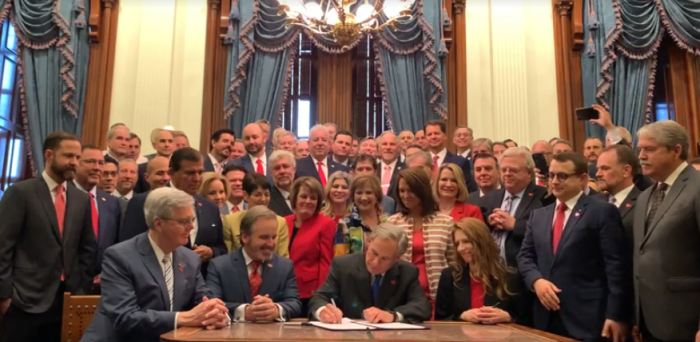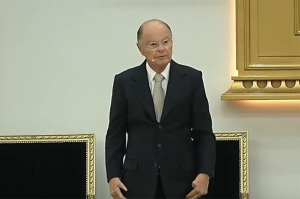Texas bill banning abortion as early as 6 weeks goes into effect despite legal challenges

A sweeping pro-life law that bans abortions as early as six weeks gestation went into effect in Texas Wednesday as the judicial branch has rejected challenges to the measure from abortion providers and advocacy groups.
Senate Bill 8, signed into law by Texas’ Republican Gov. Greg Abbott in May, went into effect early morning Wednesday.
The bill bans abortions after a fetal heartbeat can be detected, usually at around six weeks gestation. It also allows individuals to take civil action against anyone who “performs and induces an abortion” or “knowingly engages in conduct that aids or abets the performance or inducement of an abortion, including paying for or reimbursing the costs of abortion through insurance or otherwise.”
On July 13, nearly two months after Abbott signed the legislation, a group of abortion providers and pro-abortion nonprofit organizations filed a lawsuit seeking to block the measure from becoming law.
So far, efforts to convince the judicial branch to strike down the law have not had success.
The 5th U.S. Circuit Court of Appeals canceled a hearing that was set for Monday. The Texas Tribune reported that 20 abortion providers sought to convince a court in Austin to block the law from taking effect.
Pro-choice groups filed emergency motions with the 5th Circuit, asking the appellate court to either block the law from taking effect or send the case back to the district court. The appellate court denied the requests.
On Monday, lawyers for Planned Parenthood and abortion providers filed an emergency appeal with the U.S. Supreme Court, asking the high court to block the law. Justice Samuel Alito, the circuit justice for the 5th Circuit and one of the most reliable pro-life jurists on the high court, will consider their motion.
John Seago, Texas Right to Life’s legislative director, described the appeal to the Supreme Court as the abortion industry’s “last desperate attempt to block the life-saving Texas Heartbeat Act from taking effect Wednesday.”
In a statement, Seago called the lawsuit "invalid" and is "hopeful that Justice Alito will examine the compelling arguments raised explaining why the case should ultimately be dismissed.”
A Travis County judge issued a temporary restraining order against Texas Right to Life and Seago, preventing them from filing lawsuits under the new law against three plaintiffs they claim are abetting in the abortion process. The ruling does not impact any other citizen’s ability to sue for violations of the law.
The Travis County judge’s ruling follows a lawsuit filed last week by pro-abortion attorney Michelle Tuegel against the pro-life organization and several Texas elected officials, including Abbott and Attorney General Ken Paxton.
Tuegel expressed concern that because she plans to continue providing her clients with advice related to abortion services, she could face criminal charges for aiding and abetting abortions.
Texas Right to Life asserted that in addition to preventing them from suing Tuegel, the ruling forbids them from suing a pro-abortion social worker and an organization called The Bridge Collective. The pro-life group maintained that “Texas Right to Life never threatened to sue these specific plaintiffs.”
According to Texas Right to Life, Texas is the first state in the nation to "successfully enforce a ban on abortions when the preborn child’s heartbeat is detectable."
While many other states have passed “heartbeat bills,” they have faced resistance from the courts.
In the past, judges have invalidated heartbeat bills passed in Mississippi, Georgia,Missouri and Iowa. This year, after a district court judge struck down South Carolina’s heartbeat ban, the state filed an appeal asking the U.S. 4th Circuit Court of Appeals to reverse the decision.
Senate Bill 8 is one of several pro-life laws introduced and implemented at the state level in 2021. The pro-abortion Guttmacher Institute has characterized this year as “the most devastating antiabortion state legislative session in decades.” A report from the group found that more than 500 pro-life bills were introduced in the first four months of 2021 alone.
The Supreme Court has announced earlier this year that it will hear a challenge to Mississippi’s 15-week abortion ban. Pro-life groups have hailed this development as a “landmark opportunity” to chip away at the precedent set by the 1973 Supreme Court decision Roe v. Wade, which ruled that women have the right to have an abortion while states have more freedom to regulate abortions later in pregnancy.
Ryan Foley is a reporter for The Christian Post. He can be reached at: ryan.foley@christianpost.com





























